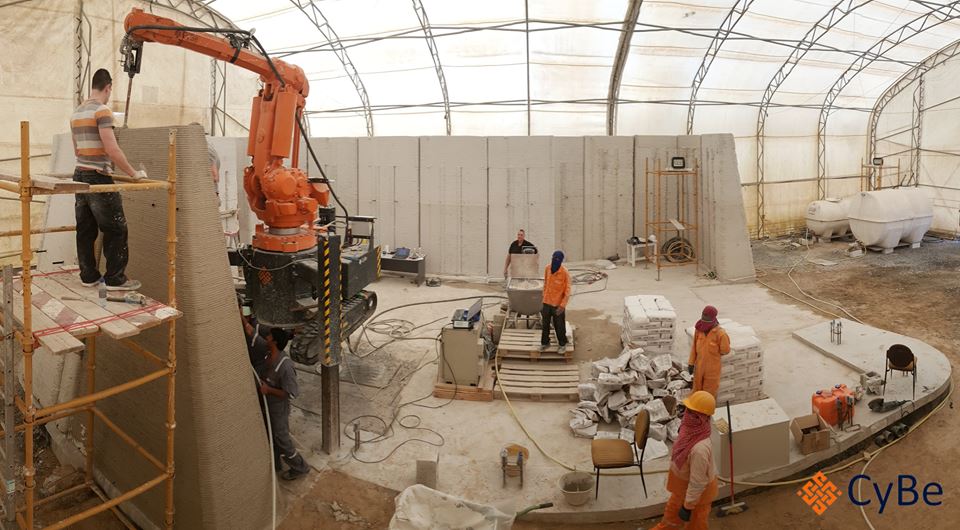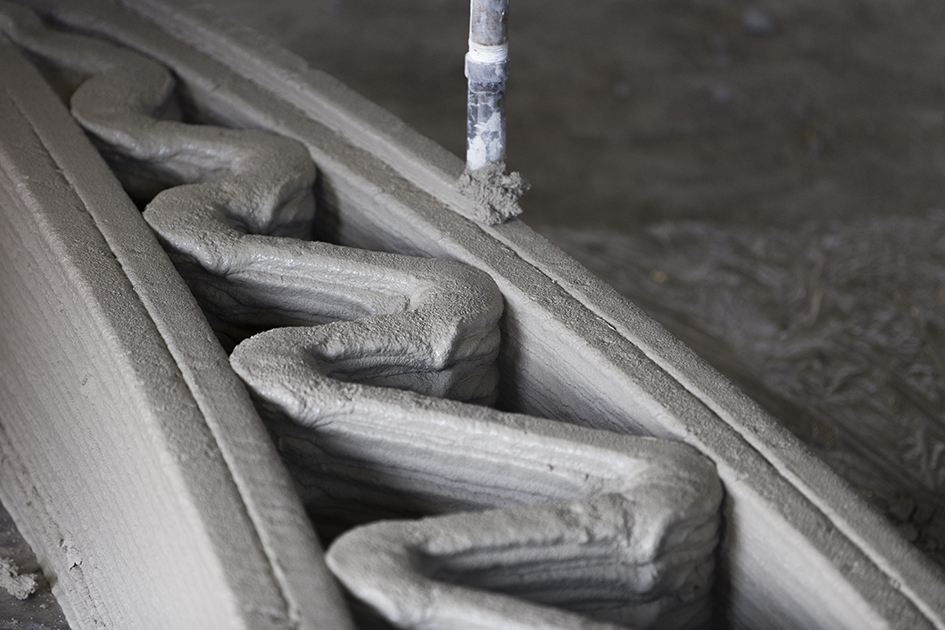Dutch concrete 3D printing company CyBe Construction has been selected as a technology provider for the building of houses in the United Arab Emirates (UAE).
Planned to be built in the Sharjah Research, Technology and Innovation Park (SRTI Park), the project aligns with Sheikh Mohammed bin Rashid Al Maktoum’s Dubai 3D Printing Strategy, that plans to use 3D printing to construct at least 25% of new buildings in Dubai by 2025.
The strategy has been gaining a substantial amount of steam in recent years, including the formation of the Smart Buildability Index (a standard for 3D printed construction), millions of dollars in funding for 3D printing entrepreneurs and the city’s first 3D printed office in 2016.
A regional development center for 3D printing construction
The SRTI Park, located just North of Dubai in the UAE, aims to be a research hub focusing on water technology, renewable energy, environmental technology, digitization, Industrial Design 4.0, and Mobility & Smart Cities.
As part of the SRTI Park project, CyBe Construction will collaborate with the UAE government, the private sector and academia, including experts from the American University of Sharjah (AUS). AUS is working on the development of 3D printing for construction, and is training students in the practice through applied scientific research. Its role within the CyBe collaboration is to provide research and talent support.
“We are delighted to launch this ambitious project, which translates the vision of the park and its ambitious strategy to introduce all kinds of reliable future technologies to serve and facilitate people,” said Hussain Al Mahmoudi, CEO of SRTI Park.
“In order to become a regional development center for 3D printing construction, we aim to create a suitable research and development environment for the private, academic and public sector to benefit.”

3D printing with concrete
The machine selected to build the SRTI Park houses will be CyBe’s mobile concrete 3D printer. With rubber wheel tracks, the machine is able to roam freely around a site.
The printer can print up to speeds of 600 mm/s with CyBe’s fast drying concrete mortar which can create load bearing structures in under an hour. CyBe explains that the printer has a variety of applications, including formworks, walls, sewer pits, abutments and floors.
Prior to this, CyBe completed its role in 3D printing a drone research & development laboratory for the Dubai Electricity and Water Authority (DEWA). The 168 meters squared lab was 3D printed on-site in three weeks with CyBe’s mobile 3D printing machine. Last year, the company announced plans to 3D print three more houses in the Croix commune of Northern France.
Al Mahmoudi added, “This type of construction has many advantages such as easy access to complex designs and simple modification with access to parts of different sizes, which results in shorter duration of implementation and cost.”
CyBe says it plans to build the first of the 3D printed houses inside the SRTI Park by Q3 2019.

Subscribe to the 3D Printing Industry newsletter and follow us on Facebook and Twitter for the latest news in additive manufacturing.
Visit our 3D Printing Jobs board to find new opportunities in your industry.
Featured image shows a digital rendering of the intended design of the 3D printed house. Image via CyBe Construction.



